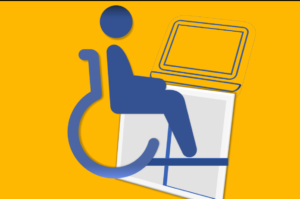Emerging State Policy in Online Special Education (2016)
 There has been a dramatic increase and acceptance of online learning in the last decade. In its various forms, online learning has begun to disrupt the status quo of K-12 education and, in turn, special education. The growing prevalence of K-12 online learning provides a grounded opportunity to reflect on traditions and redesign policies, systems, and practices. The most recent report by the Evergreen Education Group (2015), the annual status report for online learning in the United States, found that online learning exists in some form across every district in the country. Yet, even with the tremendous increase in online learning, it is impossible to identify how many students, including students with disabilities, are participating in some form of online learning. This lack of understanding, alongside the involved nature associated with the various forms of online learning, provides complexities in researching as well as evaluating the impact of online learning in practice. The concern is that districts across the United States may be adopting various forms of online learning without considering the complexities that online learning introduces to the teaching practice and how these changes may be impacting students. The purpose of this article is to provide education leaders and educators with a basic understanding of online learning policies in the United States. As the current adoption rates for online learning continue, state and district leaders should be aware of the nuanced models as well as individual practices that might impact student learning. All systems and models in online learning are not equal. Thus, it is critical to ask questions on behalf of students with disabilities. Through collaborative partnerships, data can be gathered to support relevant research, technical assistance, and overcome challenges and barriers to success. Finally, there is an urgent need to consider policy and guidance to support parents and professionals serving students with disabilities across the various online environments.
There has been a dramatic increase and acceptance of online learning in the last decade. In its various forms, online learning has begun to disrupt the status quo of K-12 education and, in turn, special education. The growing prevalence of K-12 online learning provides a grounded opportunity to reflect on traditions and redesign policies, systems, and practices. The most recent report by the Evergreen Education Group (2015), the annual status report for online learning in the United States, found that online learning exists in some form across every district in the country. Yet, even with the tremendous increase in online learning, it is impossible to identify how many students, including students with disabilities, are participating in some form of online learning. This lack of understanding, alongside the involved nature associated with the various forms of online learning, provides complexities in researching as well as evaluating the impact of online learning in practice. The concern is that districts across the United States may be adopting various forms of online learning without considering the complexities that online learning introduces to the teaching practice and how these changes may be impacting students. The purpose of this article is to provide education leaders and educators with a basic understanding of online learning policies in the United States. As the current adoption rates for online learning continue, state and district leaders should be aware of the nuanced models as well as individual practices that might impact student learning. All systems and models in online learning are not equal. Thus, it is critical to ask questions on behalf of students with disabilities. Through collaborative partnerships, data can be gathered to support relevant research, technical assistance, and overcome challenges and barriers to success. Finally, there is an urgent need to consider policy and guidance to support parents and professionals serving students with disabilities across the various online environments.
Journal of Special Education Leadership Via ERIC







